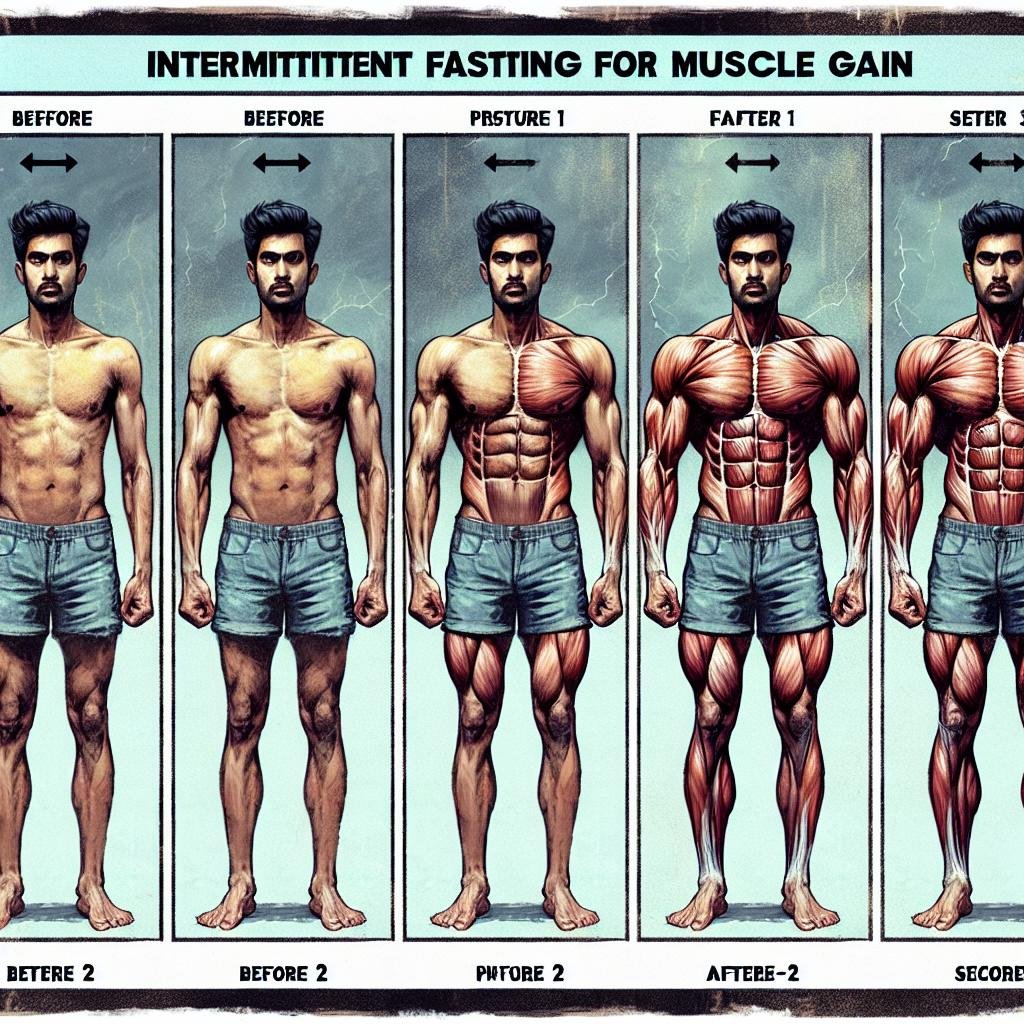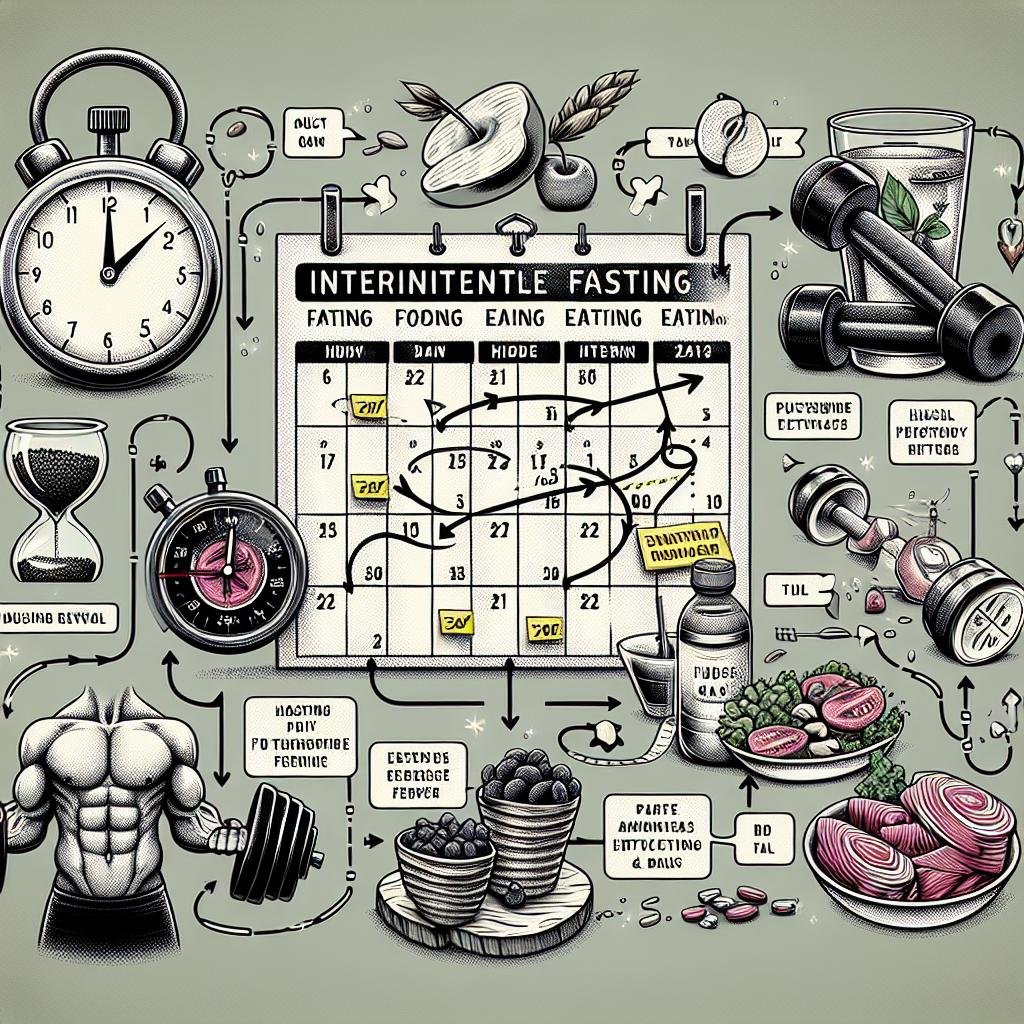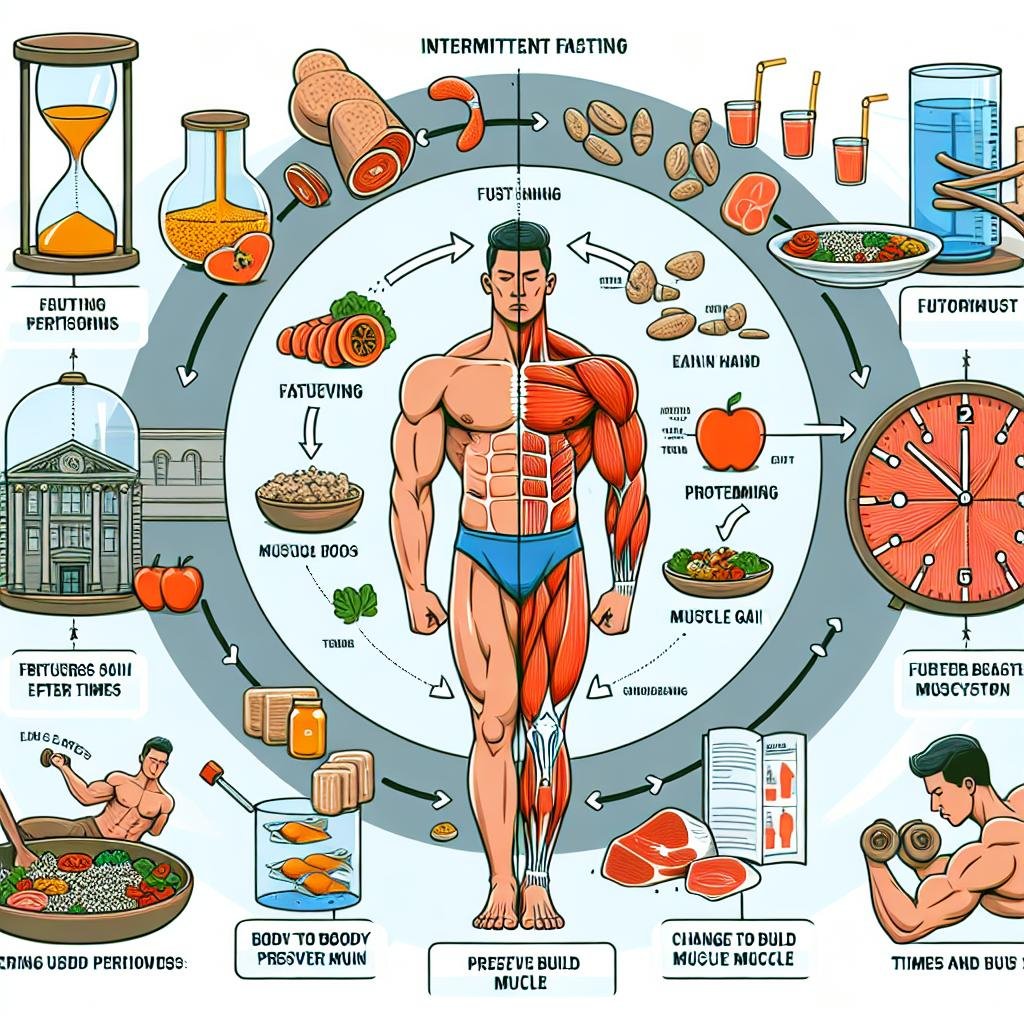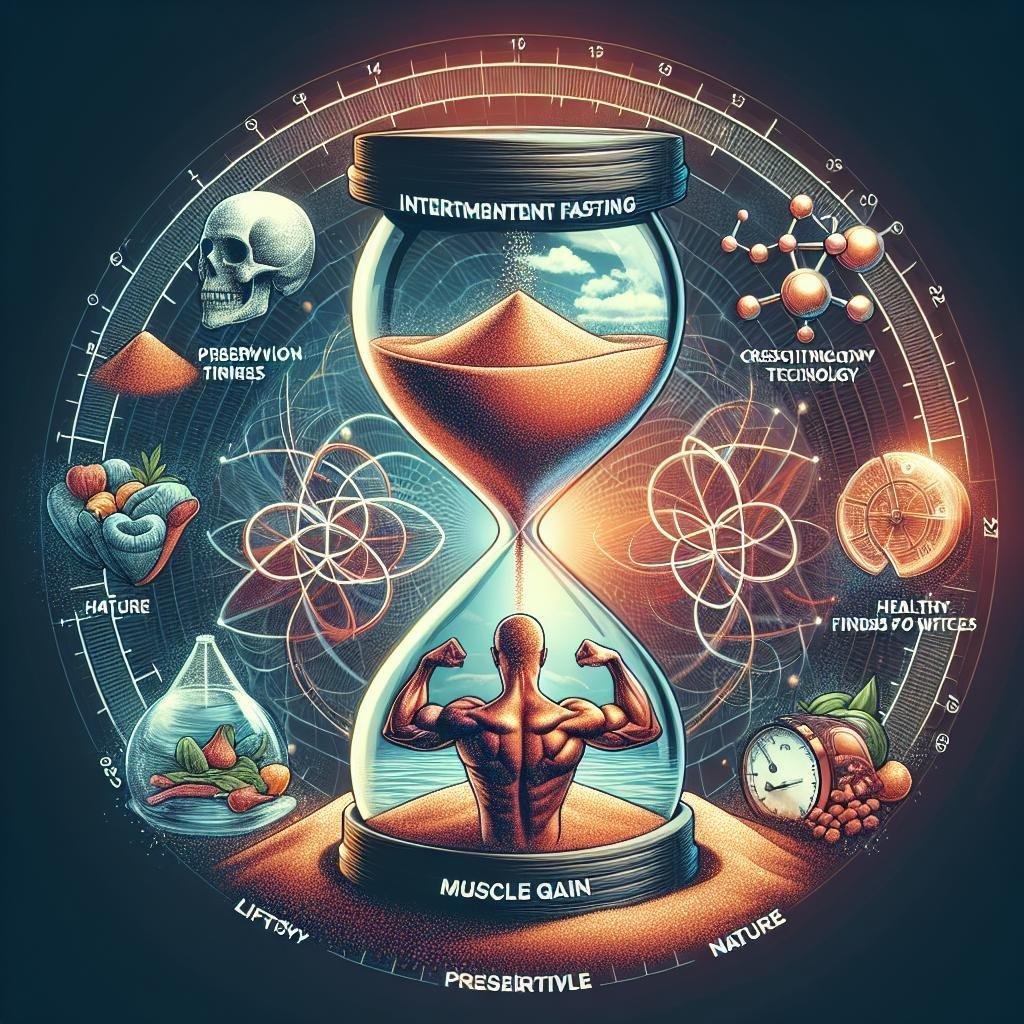In the ever-evolving landscape of health and fitness, intermittent fasting has emerged as a prominent trend, lauded for its potential benefits on weight loss and metabolic health. However, for those on a quest to build muscle, the conversation often veers into uncharted territory. Can the art of fasting coexist with muscle gain? In this article, we delve into the intriguing intersection of intermittent fasting and strength training, exploring how to effectively preserve and enhance muscle mass while embracing a fasting routine. Whether you’re an experienced lifter or a curious newcomer, we’ll uncover evidence-based strategies that empower you to harness the benefits of fasting without sacrificing your hard-earned gains. Prepare to challenge conventional wisdom and discover how timing and nutrition can be optimized to support your fitness journey.
Understanding the Science of Intermittent Fasting and Muscle Metabolism
Intermittent fasting (IF) has gained popularity not only for weight management but also for its distinct impact on muscle metabolism. During fasting periods, the body transitions into a state of ketosis, utilizing stored fat for energy, which can boost fat oxidation. Simultaneously, muscle preservation remains a key concern, as the body tends to break down muscle proteins during prolonged fasting. However, when combined with resistance training and a focus on adequate protein intake during feeding windows, intermittent fasting can actually promote muscle synthesis by increasing the production of growth hormones and enhancing insulin sensitivity.
To optimize muscle maintenance while practicing intermittent fasting, consider the following strategies:
- Timing Nutrient Intake: Schedule your protein-rich meals around your workouts to maximize muscle repair and growth.
- Protein Quality: Choose high-quality protein sources like lean meats, eggs, and plant-based options to support muscle needs.
- Hydration: Stay well-hydrated during fasting periods to aid overall metabolic processes.
- Incorporating BCAAs: Consuming branched-chain amino acids may help maintain muscle mass during longer fasting intervals.

Nutritional Strategies for Maximizing Muscle Preservation During Fasting
To effectively maintain muscle mass while participating in fasting regimens, it’s essential to adopt a nutritional approach that prioritizes protein intake. Focus on consuming high-quality protein sources during your eating windows to stimulate muscle protein synthesis. Ideal options include:
- Lean meats: Chicken, turkey, and lean cuts of beef
- Fish: Salmon, tuna, and other fatty fish
- Dairy: Greek yogurt, cottage cheese, and low-fat cheese
- Plant-based proteins: Lentils, chickpeas, and quinoa
Additionally, supplementing with branched-chain amino acids (BCAAs) can further enhance muscle preservation during fasting periods. Taking a BCAA supplement before or after workouts helps reduce muscle breakdown and encourages recovery. Timing your meals efficiently, ensuring a protein-rich meal post-workout, while spreading protein intake throughout your eating windows can maximize the benefits. Here’s a quick guide on nutrient timing:
| Time | Focus |
|---|---|
| Pre-fast | Protein-rich meal |
| During fast (Workout) | BCAA supplement |
| Post-fast | Recovery meal with protein and carbs |

Optimizing Workout Timing and Intensity for Muscle Growth While Fasting
Timing your workouts strategically during a fasting regimen can significantly enhance muscle growth potential. Ideally, aim to exercise just before your eating window opens. This allows for a post-workout meal where you can replenish glycogen stores and provide your muscles with the necessary amino acids for recovery. Furthermore, consider varying the intensity of your workouts; alternating between heavy resistance and lighter, higher-rep days can help keep your body in a prime state for muscle synthesis without overexerting it during fasting periods. Fasted workouts can also enhance fat burning when intensity is kept moderate, making them an effective option for body composition goals.
In terms of workout structure, focus on compound movements that engage multiple muscle groups, as they are more efficient for muscle growth. Maintain an emphasis on maintaining proper form and control, especially during fasting when energy levels may be lower. Consider incorporating short bursts of high-intensity interval training (HIIT) that can stimulate hypertrophy while being mindful not to overdo cardio, which can lead to muscle catabolism. Here’s a brief overview of a weekly workout plan ideal for muscle gain during fasting:
| Day | Workout Type | Intensity |
|---|---|---|
| Monday | Upper Body Strength | Heavy |
| Wednesday | Lower Body Strength | Moderate |
| Friday | Full Body HIIT | High |
| Saturday | Active Recovery | Low |

Supplementation Tips to Support Muscle Development in an Intermittent Fasting Regimen
When engaging in intermittent fasting, supplementing wisely can help you maximize muscle gains despite the eating windows. Prioritize branched-chain amino acids (BCAAs), as they play a critical role in muscle recovery and growth. Consuming BCAAs before or during your fasting period can help mitigate muscle breakdown while enhancing your workout performance. Other beneficial supplements include creatine, known for its ability to improve strength and power output, and protein powders, which provide a convenient way to meet your protein needs during eating windows. Additionally, consider incorporating electrolytes to maintain hydration and muscle function, especially during prolonged fasting bouts.
In terms of timing, aim to take your supplements strategically around your workouts. For example, a combination of pre-workout supplements can give you the energy boost you need without breaking your fast. Post-workout, focus on whey protein or plant-based protein options to aid in muscle repair and growth when your eating window opens. Below is a simplified table outlining supplement timing and benefits:
| Supplement | Best Timing | Benefits |
|---|---|---|
| BCAAs | During Fast / Pre-Workout | Enhances muscle preservation |
| Creatine | Post-Workout / Any Time | Improves strength & performance |
| Protein Powder | Post-Workout | Supports muscle recovery |
| Electrolytes | Throughout Fast | Maintains hydration |
Concluding Remarks
intermittent fasting presents a unique and effective framework for those seeking to preserve and even build muscle while managing their dietary habits. As we’ve explored, the principles of nutrient timing, careful meal planning, and awareness of protein intake play pivotal roles in achieving muscle growth during fasting periods. By adopting a well-structured approach and listening to your body’s needs, you can harness the benefits of intermittent fasting without sacrificing your muscle gains.
Remember, the journey to fitness is not a one-size-fits-all endeavor. It requires patience, experimentation, and a keen understanding of what works best for you. As you step into this new regime, keep an open mind and allow your body the time it needs to adapt and flourish.
With the right strategies in place, intermittent fasting can be a powerful ally in your quest for strength and endurance. So, whether you’re a seasoned athlete or just starting out, embrace the challenge—after all, every fast will bring you one step closer to realizing your muscle gain goals. Happy fasting, and may your journey be filled with strength and resilience!

